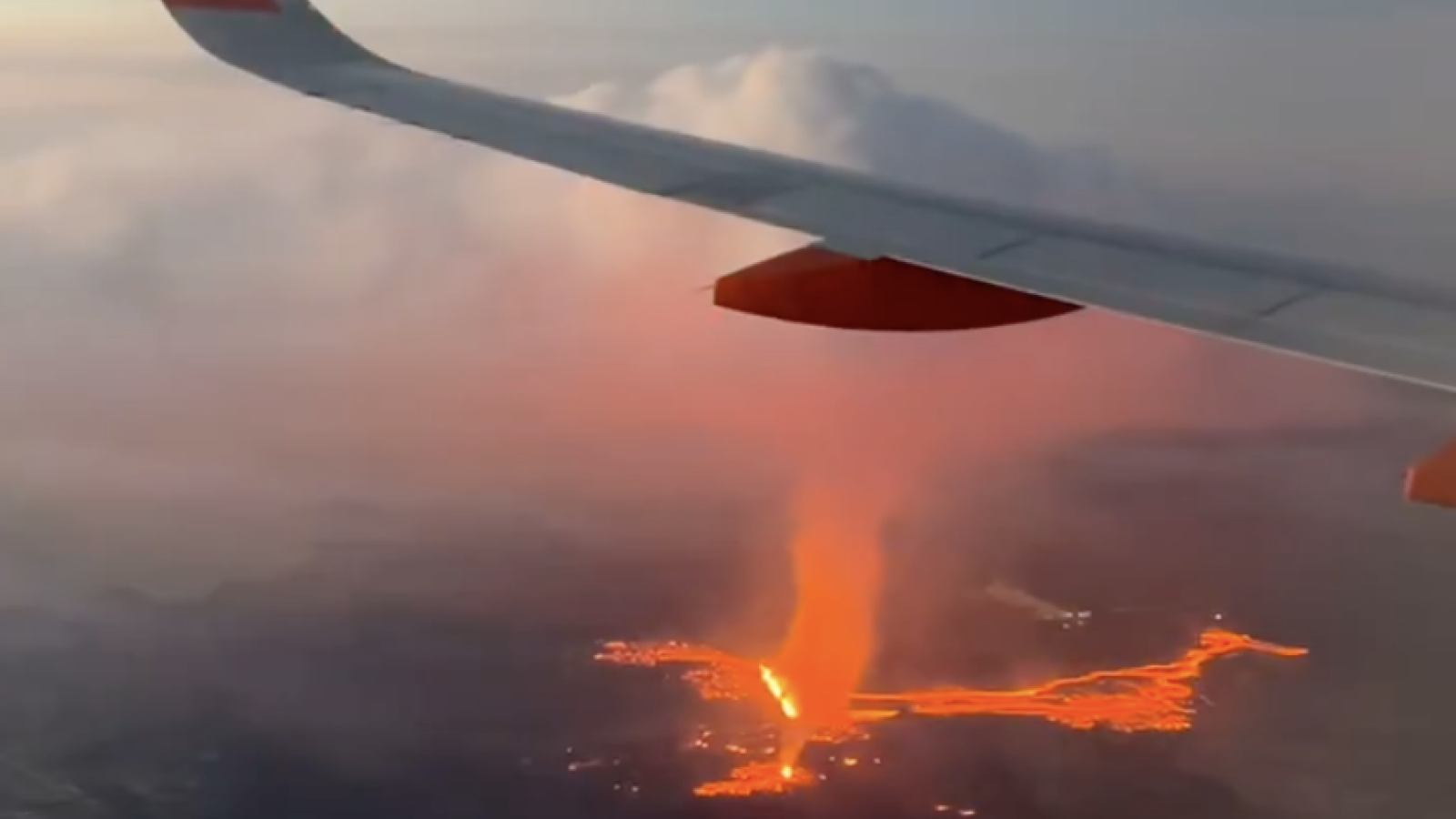A passenger on a plane filmed the volcanic eruption at Sundhnúksgíga on Iceland’s Reykjanes Peninsula.
The Icelandic Meteorological Office of the volcano erupted on Wednesday, and lava has continued flowing westward.
The eruption is the seventh time an eruption event has occurred on the Reykjanes Peninsula in the last year.
Take a look:
📰 New: A passenger filmed a volcanic eruption in Iceland from an airplane.
pic.twitter.com/jSB9ycmvRI— The Calvin Coolidge Project (@TheCalvinCooli1) November 25, 2024
My life has peaked. Nothing is ever topping this. Volcano erupted last night in Iceland 🇮🇸 pic.twitter.com/x2sqlJTwym
— kayleigh🫧⚒️ (@PatterKayleigh) November 21, 2024
Here’s what Newsweek reported:
The volcanic eruption at Sundhnúksgíga on Iceland’s Reykjanes Peninsula has reached defense structures near Svartsengi Power Station and the Blue Lagoon attraction.
ADVERTISEMENTAccording to the Icelandic Meteorological Office (IMO), the eruption remains stable as of Saturday, although lava is advancing westward, placing pressure on dikes and thickening along the resort’s defenses.
Lava continues to flow from three active craters, with the central crater being the most active. No earthquakes have been recorded in the area.
This eruption, which began Wednesday evening, marks the seventh volcanic event on the Reykjanes Peninsula in under a year, continuing a surge of geological activity in the region.
The lava-protective walls by the Blue Lagoon are holding!
#iceland #volcano #bluelagoon pic.twitter.com/5otxYrXFkt— Isak Finnbogason (@icelandfpv) November 24, 2024
Per AP:
A volcano in southwestern Iceland that has roared back to life after eight centuries of silence has erupted for the seventh time since December, sending molten lava flowing towards the Blue Lagoon spa, a major tourist attraction.
The eruption on the Reykjanes Peninsula started with little warning at 11:14 p.m. (2314 GMT) Wednesday and created a fissure around 3 kilometers (1.8 miles) long. The activity is estimated to be considerably smaller than the previous eruption in August, according to Iceland’s meteorological office that monitors seismic activity.



Join the conversation!
Please share your thoughts about this article below. We value your opinions, and would love to see you add to the discussion!